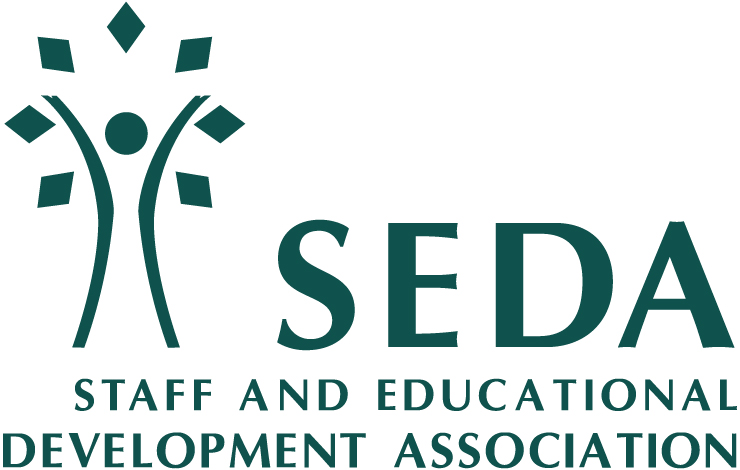Inclusive Educator
Certificate of Completion | INED
This certificate program offers both theoretical and practical knowledge and skills to empower educators to first identify common barriers for diverse learner populations and then make changes to their teaching and course designs to create more inclusive learning environments. The certificate is designed to take an intersectional approach to inclusive teaching practices, meaning that multiple forms of exclusion or oppression are considered rather than focusing on a single type of exclusion in education. The rationale behind this is that by helping educators develop the ability to identify exclusionary educational design broadly, they will be better equipped to address all forms of exclusion.
Upon successful completion of this certificate, learners will be able to:
-
Identify their own professional development goals, directions, or priorities for designing inclusive learning environments.
-
Plan for their initial and/or continuing professional development related to inclusive pedagogy.
-
Undertake appropriate professional development activities as they pertain to inclusive education.
-
Use a variety of methods for evaluating their teaching.
-
Inform their practice with relevant inclusive strategy, policy, and quality considerations.
-
Use a range of methods of teaching and supporting learning, assessment, and feedback appropriate to diverse learners, subjects, and contexts, including the use of appropriate technologies.
-
Contribute to the design, planning, and evaluation of courses, modules, or programs to include diverse perspectives and provide for diverse access needs within the classroom.
-
Create a safe, accessible, and culturally responsive learning environment that includes student support and guidance
SEDA Accreditation
The Adult Education Teaching Excellence Certificate program is accredited for SEDA - PDF Learning, Teaching and Assessing Award. The learning outcomes of this program maps to the Staff and Educational Development Association (SEDA) underpinning Values and Core Development Outcomes, and the SEDA PDF-Learning, Teaching, and Assessing Award Specialist Outcomes.
Upon successful completion of this certificate, you will be entitled to refer to yourself as a SEDA Recognised Teacher.

Curriculum
Quick-Look Availability Scheduler
Use the Quick-Look Availability Scheduler to see available courses in a calendar view and plan towards achieving your certificate.
 Loading...
Loading...| Course Name | 2026/2027 Academic Year | 2027/2028 Academic Year | |||||||||||||
|---|---|---|---|---|---|---|---|---|---|---|---|---|---|---|---|
| Compulsory | Feb | Mar | Apr | May | Jun | Jul | Aug | Sep | Oct | Nov | Dec | Jan | Feb | Mar | Apr |
| AETC 100: Foundations of Inclusive Teaching | |||||||||||||||
| IEC 101: Inclusive Curriculum Design | |||||||||||||||
| IEC 102: Accessible Education Practices | |||||||||||||||
| IEC 103: Holistic Education Practices | |||||||||||||||
Compulsory Courses
This micro-credential course provides an introduction to the foundations of inclusive teaching, starting with a fundamental understanding of learner variability and how social positioning impacts learner experiences of inclusion and exclusion. Learners will engage in self-reflection on their own social identities, lived experiences, and assumptions about education.
Upon completion of this micro-credential course, learners should be able to:
- Reflect on issues of ethnocentrism, stereotyping, bias, discrimination, power, and privilege.
- Critically reflect on personal beliefs, values, and positionality and how it impacts teaching practice.
- Illustrate the components of cultural awareness and competence.
- Explore various approaches to inclusive teaching.
- Craft a teaching philosophy statement that reflects enhanced understanding of learner variability and inclusion.
This micro-credential course provides an introduction to curriculum design and an understanding of inclusion as a design consideration. We will start by reviewing curricular theories and re-examine the roles of the teacher and the student. Participants will then focus on the curriculum design process, including learning outcomes and assessment, and explore how each step can be made more inclusive.
Upon completion of this micro-credential course, learners should be able to:
- Explore fundamental curriculum development processes and how they can be made more inclusive.
- Consider curricular theories and how curriculum and learning design can reinforce existing social inequities.
- Examine various orientations to the curriculum that reflect conflicting motivations, values, and assumptions about education.
- Apply inclusive design principles to the creation of learning outcomes.
- Apply inclusive design principles to the design of assessments.
- Create a classroom environment to meet the needs of diverse learners.
This micro-credential course focuses on building awareness of accessibility and barriers to participation that exist in educational experiences. We will explore theories of disability and discuss how to identify and address access needs for diverse learner populations. Participants will work to develop their own accessibility toolkit, drawing on different accessibility frameworks and practices, including Universal Design for Learning and Inclusive Universal Design.
Upon completion of this micro-credential course, learners should be able to:
- Examine common barriers to participation and how they are constructed in educational settings.
- Consider access needs of diverse student populations.
- Apply basic accessibility practices in course design and teaching practice.
- Incorporate Universal Design principles into course design and teaching practice.
This micro-credential course focuses on creating learning experiences that understand the complex and intersecting identities of learners. The course focuses on different ways of knowing and how these can be reflected in the course design. We will also discuss mental-health considerations and the importance of a trauma-informed approach to teaching. Specific frameworks that will be explored include Trauma-Informed Pedagogy, Culturally Relevant Pedagogy and Culturally Sustaining Pedagogy.
Upon completion of this micro-credential course, learners should be able to:
- Consider different ways of knowing and how different knowledge paradigms are valued in educational settings.
- Critically reflect on personal epistemologies or knowledge biases and how they impact teaching practice.
- Identify complex learner needs and the resources that can be drawn on to support them.
- Create a safe classroom climate that supports learners holistically.
- Integrate diverse perspectives and ways of knowing into the curriculum to promote a sense of belonging among diverse learner populations.

Processing your request, please wait...